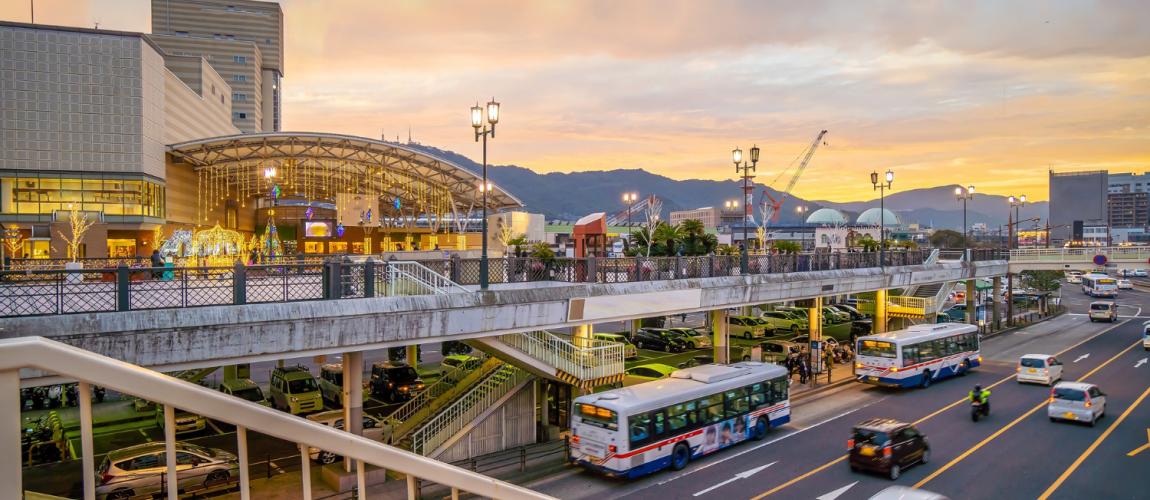Bus Terminal-cum-Commercial complex in Mohali, India

Photo Credit: Image by Freepik
On this page: Challenging case: Bus Terminal-cum-Commercial complex in Mohali, India. Find more at the Municipal Public-Private Partnership Framework - Project Summaries section for brief summaries of around 100 projects from around the world, examples of successes and challenges, as well as innovative ideas on solutions, or visit the Guidelines on Innovative Revenues for Infrastructure section.
Project Summary: Background Mohali’s bus terminal was not meeting the transport demands of a growing city, which had burgeoned into a commercial and institutional hub and an investment destination for IT, electronics, and real estate development. To better meet the demand for bus services, the Greater Mohali Area Development Authority, the Department of Transport, and the Government of Punjab decided to pursue a PPP for the design, construction, operation and transfer of a new bus terminal. As the terminal facility alone, however, was not viewed as commercially desirable enough to attract investors, the project design incorporated the development of adjacent commercial facilities to increase its financial viability. Project Structure The project design, considered to be the first-ofits- kind “busopolis” in India, included three main facilities: a bus terminal with passenger amenities and retail space; a hotel with a helipad, and a commercial office tower. Revenue from the bus terminal would be derived primarily from the “adda” fee – a fee collected from all buses on exiting the terminal, in addition to revenues from commercial leases to vendors, parking, a cycle stand, and advertising. Hotel operations, including landing charges for use of the helipad, and the sale, longterm lease or rental of commercial developments for retail and office space, are expected to provide substantial additional revenue for the concessionaire. The private partner undertook to design, build, finance, operate and transfer the bus terminal and adjacent commercial facilities, in return for a 20- year concession for the bus terminal and a 90-year concession for the commercial complex. Investment costs were estimated at approximately Rs 431 crore (USD 60 million), but due to a change in the project scope and delays in project implementation the total project cost was later revised to Rs. 530 crore (USD 74 million). The private partner was selected through a twostage international competitive bidding process. The project was awarded on the basis of minimum eligibility requirements and highest bid for the upfront concession fee, payable to the Greater Mohali Area Development Authority. The winning bidder, an Indian infrastructure construction conglomerate, offered an upfront fee of 57 crore (USD 8 million), in addition to the payment of an upfront project development fee of Rs 1,25 crore (USD 200,000) to the Government of Punjab, which was fixed at 5 percent of the upfront concession fee. In addition, the private partner agreed to pay the Development Authority an annual concession fee of Rs. 2,85 crore (USD 400,000), which increases by 15 percent every three years. The project investment cost was financed with a debt-to-equity ratio of 0.86:1. The private partner’s equity contribution included revenue generated from the sale of a fixed amount of commercial space at an agreed minimum rate. As a credit enhancement, the private partner agreed to a firm tie-up of 50 percent of the funds from the sale of the commercial space required to finance the project before the first loan disbursement. Lessons Learned The busopolis project commenced operations by the end of 2016 and was expected to realize around 2,000 bus-trips daily. However, reports from 2017 indicated that the bus terminal was receiving only around 200 buses and 100 people per day, due to users and drivers continuing to use a pre-existing bus stand and thereby avoid the usage fee charged by the new terminal. In addition, several investors that purchased space in the complex’s commercial areas have reported that they have not received the offices and shops they purchased in 2010 or a refund of the purchase price after the developer failed to hand over the spaces in 2012 as agreed.1 Footnote 1: Source(s): https://www. candcinfrastructure. com/images/PPP%20 in%20Urban%20 Transport%20Infra.pdf https://timesofindia. indiatimes.com/ city/chandigarh/ mohali-terminalchairman- bookedfor- duping-buyers/ articleshow/68195418. cms https://www. rozanaspokesman.com/ news/punjab/mohaliisbt- dream-projectof- former-deputy-cmproved- a-failure.html
The Guidelines on Innovative Revenues for Infrastructure (IRI) is intended to be a living document and will be reviewed at regular intervals. They have not been prepared with any specific transaction in mind and are meant to serve only as general guidance. It is therefore critical that the Guidelines be reviewed and adapted for specific transactions.
To find more, visit the Innovative Revenues for Infrastructure section and the Content Outline, or Download the Full Report. For feedback on the content of this section of the website or suggestions for links or materials that could be included, please contact the Public-Private Partnership Resource Center at ppp@worldbank.org.
Updated:
TABLE OF CONTENTS
I. Innovative Revenues for Infrastructure (IRI)
2. Introduction to Commercial Value Capture (CVC)
3. Applying CVC in Infrastructure Projects
2. Case Studies in CVC from International Experiences
Related Content
Select WBG PPP Toolkits
Featured Section Links
Additional Resources
Climate-Smart PPPs
Type of ResourceFinance Structures for PPP
Type of ResourceFinancing and Risk Mitigation
Type of Resource